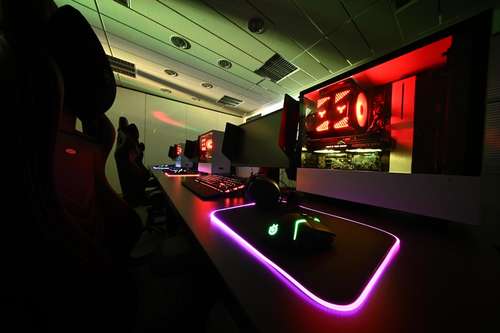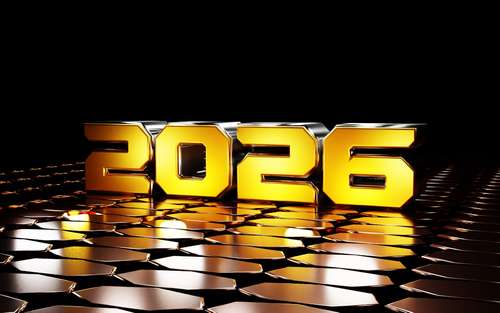So, you've probably heard the recent buzz around a potential Steam Deck 2 powered by AMD's Ryzen Z2 processor, right? It was like the gaming world's version of Bigfoot—elusive yet tantalizing. But hold your horses! Valve has officially put these rumors to bed. That's right, folks, no Ryzen Z2 magic for the next Steam Deck. If you were dreaming of revving up your gaming experience with this new chip, it's time to hit the brakes.
Now, why all the fuss? Well, following CES 2023, whispers turned into full-blown speculation about a next-gen Steam Deck. It seemed plausible, especially with the constant arms race between gaming consoles like the PS5, Xbox Series X, and Nintendo Switch. Everyone's either upgrading or releasing new editions to keep us gamers on our toes. So, why wouldn't Valve want a piece of that pie?
Valve's Official Stance
In an unexpected twist, Pierre-Loup Griffais, a coder at Valve, stepped in to douse the flames of excitement. He confirmed that Valve has no plans to release a Steam Deck model with the Ryzen Z2 processor. You might be asking, "Why would Valve miss out on such an opportunity?" Well, it's not all about chasing the latest hardware trends.
Valve's focus, as Griffais points out, is more on optimizing the current model. The idea is to squeeze every ounce of performance from the existing hardware before jumping onto the next big thing. Think of it like squeezing the last drops of toothpaste from the tube. You want to make sure you've used what you've got to its fullest before tossing it out.
When you consider the current Steam Deck's reception, it's not hard to see why Valve is in no rush. Users have lauded its performance, especially considering its price point compared to other gaming giants like the PS5 and Xbox Series X. Adding a Ryzen Z2 processor might sound enticing, but does it really align with Valve's broader strategy?
Rumors vs Reality
Ah, rumors—they're the lifeblood of the internet. They keep us entertained, guessing, and sometimes, on the edge of our seats. The Ryzen Z2 speculation was fueled by enthusiasts who pieced together snippets of information, much like detectives in a noir film. But as it turns out, the clues led nowhere.
Why did this rumor gain traction in the first place? When companies like AMD unveil new processors, it's like a shiny new toy on the playground. Everyone wants to get their hands on it. The gaming community, with its insatiable appetite for performance, naturally speculated about its integration into new devices.
The fervor surrounding the Steam Deck 2 is a testament to Valve's impact on the gaming community. It's a David among Goliaths, competing with the PlayStation 5 and Xbox Series S in unique ways. However, this time, the rumor mill got ahead of itself, proving that not every hint leads to a grand revelation.
Comparisons with Other Consoles
Let's put the Steam Deck under the microscope for a second. How does it stack up against the PS5, Xbox Series X, and the Nintendo Switch? Each console has its charm, and yet, the Steam Deck carves a niche for itself with its portable PC gaming experience.
PlayStation 5 and Xbox Series X are powerhouses, no doubt. They offer jaw-dropping graphics and performance. But the Steam Deck offers something different—a handheld PC gaming experience. It's like having your cake and eating it too. You get the Steam library at your fingertips, something neither the PS5 nor Xbox can boast about.
The Nintendo Switch, on the other hand, shares the portable arena with the Steam Deck. But while the Switch has its exclusive titles and family-friendly appeal, the Steam Deck caters to the hardcore PC gamers who crave flexibility and power on the go. So, while a Ryzen Z2 upgrade sounds thrilling, it's not the only path to staying competitive.
The Future of Steam Deck
Valve's decision to stick with the current model isn't just a business move; it reflects a broader strategy. They're focusing on refining what they have, enhancing software compatibility, and ensuring the existing Steam Deck runs like a well-oiled machine.
Griffais emphasized the importance of software optimization over hardware upgrades. In a world obsessed with the latest specs, this approach is refreshing. It's like tuning a classic car to perfection rather than buying a new one with all the bells and whistles.
So, what's next for the Steam Deck? Well, Valve might surprise us with software updates that push the device's capabilities further. Maybe they’re working on a long-term plan that includes a hardware upgrade, but it seems clear that the immediate future is all about maximizing the current model's potential.
For now, Valve's commitment to the current Steam Deck model means we can expect more games, better software support, and perhaps improvements in battery life or ergonomics. It's like slowly perfecting a recipe rather than rushing out a new dish.
Gamer Reactions
How are gamers taking this news? Opinions are mixed. Some are relieved that Valve isn't rushing into a new model, ensuring the current Steam Deck remains relevant and supported. Others, of course, can't help but feel a tad disappointed. After all, who doesn't love shiny new tech?
But the community's response highlights the deep-rooted trust in Valve's vision. Gamers appreciate that the company isn't succumbing to the pressure of releasing a new model just for the sake of it. They understand that sometimes, slow and steady wins the race.
As one gamer put it, "I'd rather have a polished device that runs smoothly than a new one with potential bugs." It's a sentiment that resonates with those who've dealt with day-one updates and unforeseen issues in new releases.
Conclusion
In the end, Valve's confirmation that there's no Ryzen Z2 for the Steam Deck 2 is a reminder that innovation doesn't always mean upgrading hardware. Sometimes, it's about getting the most out of what you have and ensuring it works seamlessly with the ecosystem you've built.
This decision keeps the spotlight on the current Steam Deck, inviting gamers to explore its existing potential. So, while we might not see a Ryzen Z2-equipped Steam Deck anytime soon, there's plenty to look forward to as Valve refines this exciting piece of gaming tech.




